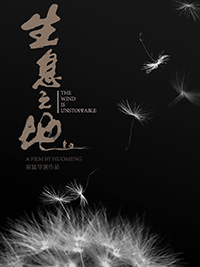Land of Steady Habits: Meng Reflects Familial Upheaval in Quiet Saga
 “Isn’t it queer: there are only two or three human stories, and they go on repeating themselves as fiercely as if they had never happened before…” wrote Willa Cather in her 1913 American frontier classic O Pioneers!. The statement’s universality is a fitting observation which applies to Chinese director Huo Meng’s sophomore film Living the Land, a period piece reflecting on socio-economic transformations affecting four generations of one family in 1991. The displacement of a ten-year-old boy provides the impetus for a narrative highlighting how eroding resources strangle the traditions of peasant farmers whose dwindling communities lead to a sense of desperation for a new generation of families.
“Isn’t it queer: there are only two or three human stories, and they go on repeating themselves as fiercely as if they had never happened before…” wrote Willa Cather in her 1913 American frontier classic O Pioneers!. The statement’s universality is a fitting observation which applies to Chinese director Huo Meng’s sophomore film Living the Land, a period piece reflecting on socio-economic transformations affecting four generations of one family in 1991. The displacement of a ten-year-old boy provides the impetus for a narrative highlighting how eroding resources strangle the traditions of peasant farmers whose dwindling communities lead to a sense of desperation for a new generation of families.
Chuang (Wang Shen) finds himself relocated to a countryside village with relatives upon the occasion of his grandmother’s recent death. At ten years of age, Chuang is his parents’ third child, and their decision to move to Shenzhen, a metropolis with more opportunities for work, means they have no way to support all of their children in the city. The arrangement seems matter of fact, almost clinical, as they say their goodbyes, attempting to normalize a situation which is actually difficult for his parents. As he becomes acclimated to his surroundings, bonding with cousins near his age, various troubles experienced by the adults around him begins to define his experiences.
In more ways than one, Land of the Living shares several themes with Meng’s first feature, Crossing the Border – Zhaoguan (2018), which also contends with a young boy sent to live with a grandparent in the countryside. Although it takes place across a much longer period of time, Wang Xiaoshuai’s So Long, My Son, set a decade prior, warrants mentioning as it also contends with friends and family displaced by shifting economic landscapes and similar traumas testing familial bonds. Meng’s latest feels much more contained, encapsulated within a year and grounded through ten-year-old Chuang as the connective tissue between various family members. As such, the narrative’s unfolding is predicated with ambiguities as we grasp as snippets of audio and visual cues influencing various reactions.
His parents put on a cheery front as they bid adieu, his mother reserving her tears for the ride to her new home. It’s unclear how much Chuang comprehends the permanency of the situation, but he’s quickly absorbed in the routines of his aunts, uncles, and great grandmother. A quiet desperation defines the lives of the adults around him, which we’re privy to only in stops and starts. Chief among them is Xiuying (Zhang Chuwen), a young aunt trapped by the local pregnancy tests administered to all women of child bearing age. She’s quickly shackled into an arranged marriage, a union she wishes to dissolve. Another relative dismisses her unhappiness. “Just endure,” she’s told.
As evidenced by the film’s opening, where a grandfather’s remains are exhumed to be placed next to his recently deceased spouse, it seems there is no actual escape from the land. The people depend on the swiftly diminishing returns of the soil only to become a literal part of it. The changing social landscape is defined by restriction, as we learn matriarch Li-Wang (Zhang Yanron) has never been properly documented. She’s assigned a number to her surname shortly before her death, an event which brings the extended family back together. Those who are unable to conform to the demands of daily labor also cause communal strife, such as Chuang’s uncle Jihua (Zhou Haotian), whose disabilities are cause for constant ire. Guo Daming’s striking cinematography encapsulates them all in a disarming lull, as there’s formidable beauty all around them, but rarely does it seem something they’re able to enjoy.
In many ways, Living the Land plays like the fictionalized version of moments in Wang Bing’s Youth trilogy, particularly in communal moments of intersecting realities. It’s a familiar human story, yet one which carves out its own fierceness as seasons change, life goes on, and new generations must contend with being unable to inherit the fruits of their parents’ toils.
Reviewed on February 14th at the 2025 Berlin International Film Festival (75th edition) – Main Competition. 132 mins.
★★★/☆☆☆☆☆


